Finding the Perfect CBD Dose for Your Dog: What Vets Won’t Tell You
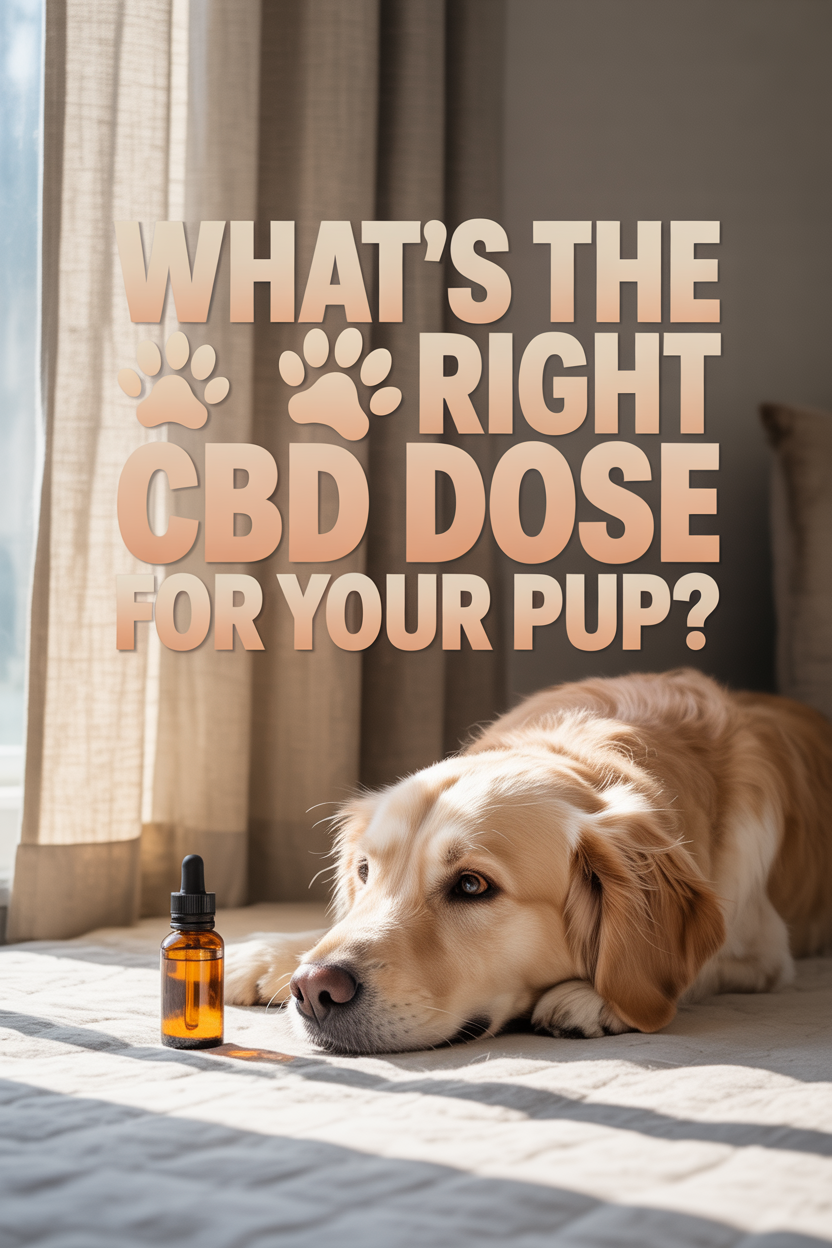
CBD Dosage for Dogs: A Complete Guide to Safe and Effective Use (Plus a Few Tail-Wagging Tips!)
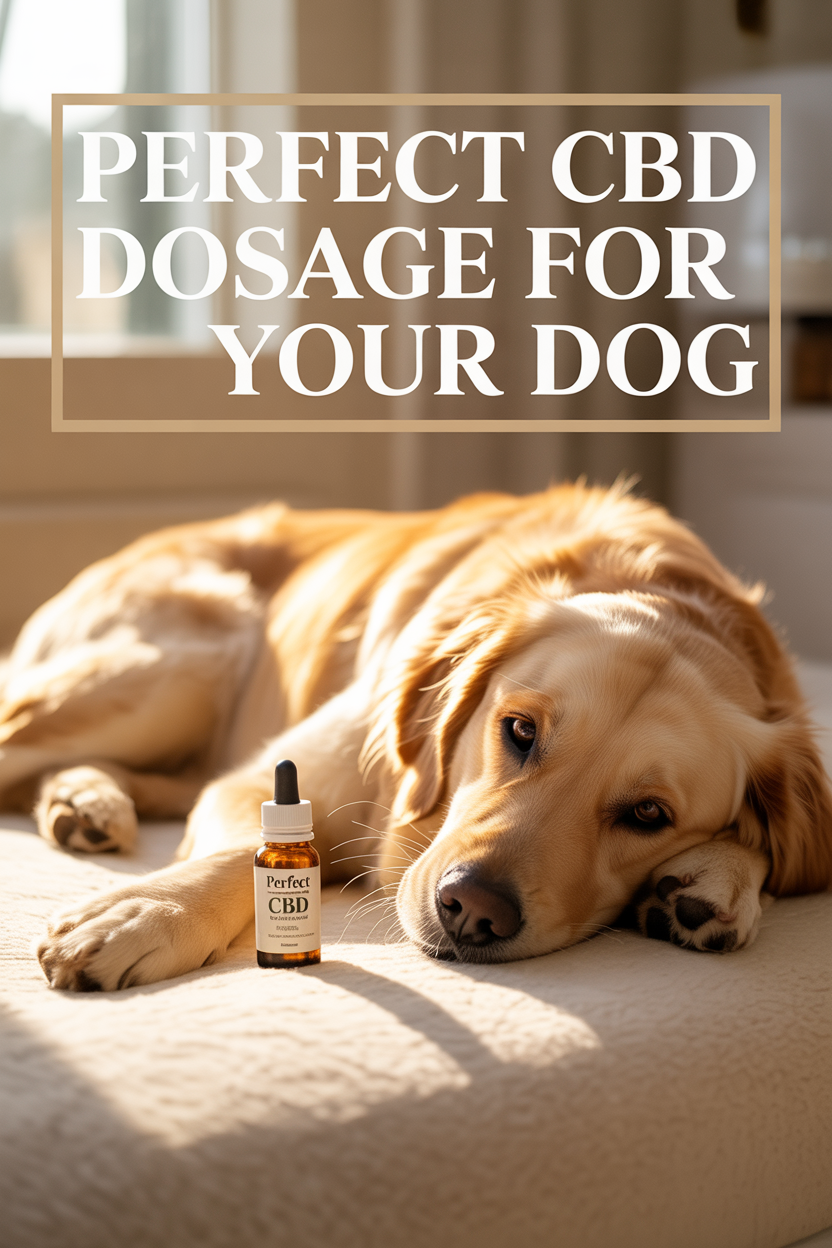
More pet parents than ever are exploring CBD as a natural wellness option for their furry friends. Finding the right CBD dosage for dogs can feel challenging without proper guidance. This comprehensive guide will walk you through everything from basic CBD information to calculating the perfect dose for your particular pooch.
Understanding CBD for Dogs

CBD (cannabidiol) is a natural compound found in cannabis plants, primarily extracted from hemp varieties with minimal THC levels. Unlike THC, CBD doesn’t produce psychoactive effects, so your dog won’t get “high.” Instead, CBD interacts with receptors in your dog’s body to potentially provide various therapeutic benefits.
When your dog takes CBD, it works with their endocannabinoid system (ECS)—a complex network of receptors throughout their body that helps maintain balance across multiple physiological processes. This system regulates mood, pain perception, immune function, and more.
The Endocannabinoid System in Dogs

Dogs, like humans and most mammals, have an endocannabinoid system that works continuously to keep their bodies in balance. This biological system consists of:
- CB1 receptors (primarily in the brain and central nervous system)
- CB2 receptors (mainly in peripheral organs and immune cells)
- Endocannabinoids (naturally produced compounds that activate these receptors)
- Enzymes that break down endocannabinoids after they’ve completed their function
When your dog has health issues, their endocannabinoid system might not produce enough natural compounds to maintain proper balance. CBD can supplement what’s missing, potentially helping restore equilibrium without causing intoxication.
Potential Benefits of CBD for Dogs

While research specifically on CBD for dogs is still developing, early studies and pet parent testimonials suggest several promising benefits:
- Reduced anxiety (including separation anxiety and noise phobias)
- Pain management for various conditions
- Decreased inflammation
- Improved mobility for dogs with joint issues
- Potential reduction in seizure frequency
- Support for dogs with certain digestive issues
A 2018 study published in Frontiers in Veterinary Science found that CBD oil helped improve comfort and activity in dogs with arthritis. Another study from Colorado State University showed promising results for reducing seizures in dogs with epilepsy.
Common Conditions CBD May Help With

Based on current knowledge, CBD might benefit dogs dealing with:
- Anxiety: Including separation anxiety, noise phobias, and travel stress
- Arthritis and joint pain: Particularly beneficial for senior dogs
- Seizures and epilepsy: As a complementary approach alongside traditional treatments
- Inflammatory conditions: Including certain skin issues that cause excessive scratching
- Cancer-related symptoms: Including discomfort and appetite loss during treatments
- Loss of appetite: When otherwise food-motivated dogs show disinterest in eating
Types of CBD Products for Your Canine Companion

The pet CBD market offers numerous options to suit different needs and preferences:
- CBD oils/tinctures: Liquid extracts you can administer directly into their mouth or mix with food
- CBD treats and biscuits: Pre-dosed edibles that make administration simple and enjoyable
- CBD capsules: For dogs who accept pill administration
- Topical CBD products: Balms and creams for localized application
- CBD-infused pet shampoos: For external application during bath time
Always choose products specifically formulated for pets. Human CBD products might contain ingredients that aren’t safe for dogs, such as certain essential oils or sweeteners.
Choosing the Right CBD Delivery Method

CBD Oil/Tinctures: These versatile products allow for precise, adjustable dosing. They typically work faster when administered under the tongue, though some dogs may dislike the taste.
CBD Treats: More convenient than oils and generally more palatable for dogs. They take longer to produce effects since they must pass through the digestive system first, but most dogs readily accept them.
Topical CBD: Ideal for targeting specific areas like hot spots or arthritic joints. These work directly where applied without significant systemic absorption.
Many pet parents use a combination approach—oils for precise daily dosing, treats for occasional supplementation, and topicals for specific problem areas.
Calculating the Right CBD Dosage
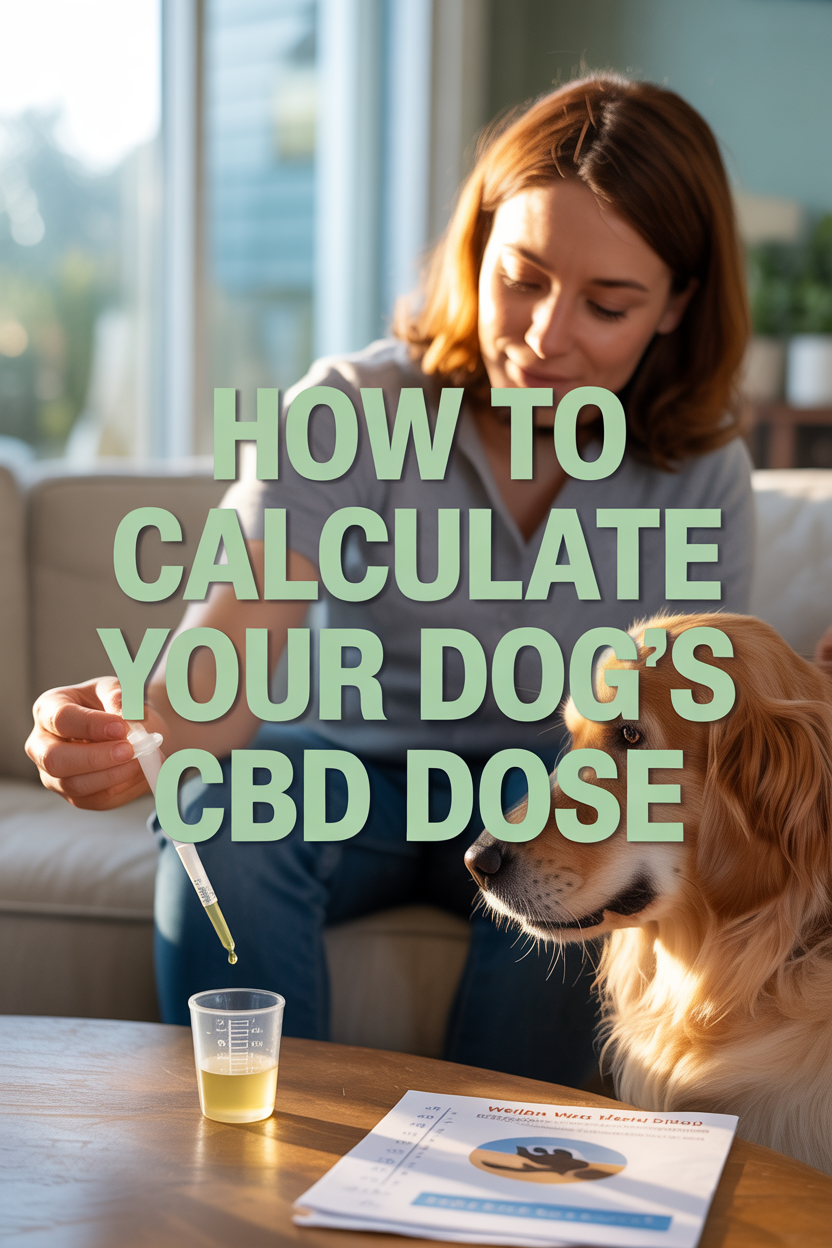
Determining the appropriate CBD dose for your dog requires consideration of several factors:
- Your dog’s weight
- The condition you’re addressing
- The concentration of CBD in the product
- Your dog’s individual sensitivity
A general starting point most experts recommend is about 0.2mg of CBD per pound of body weight for mild issues and 0.5mg per pound for more serious conditions. The golden rule of CBD administration is “Start low and go slow” to find the optimal dose for your specific dog.
Weight-Based Dosage Guidelines
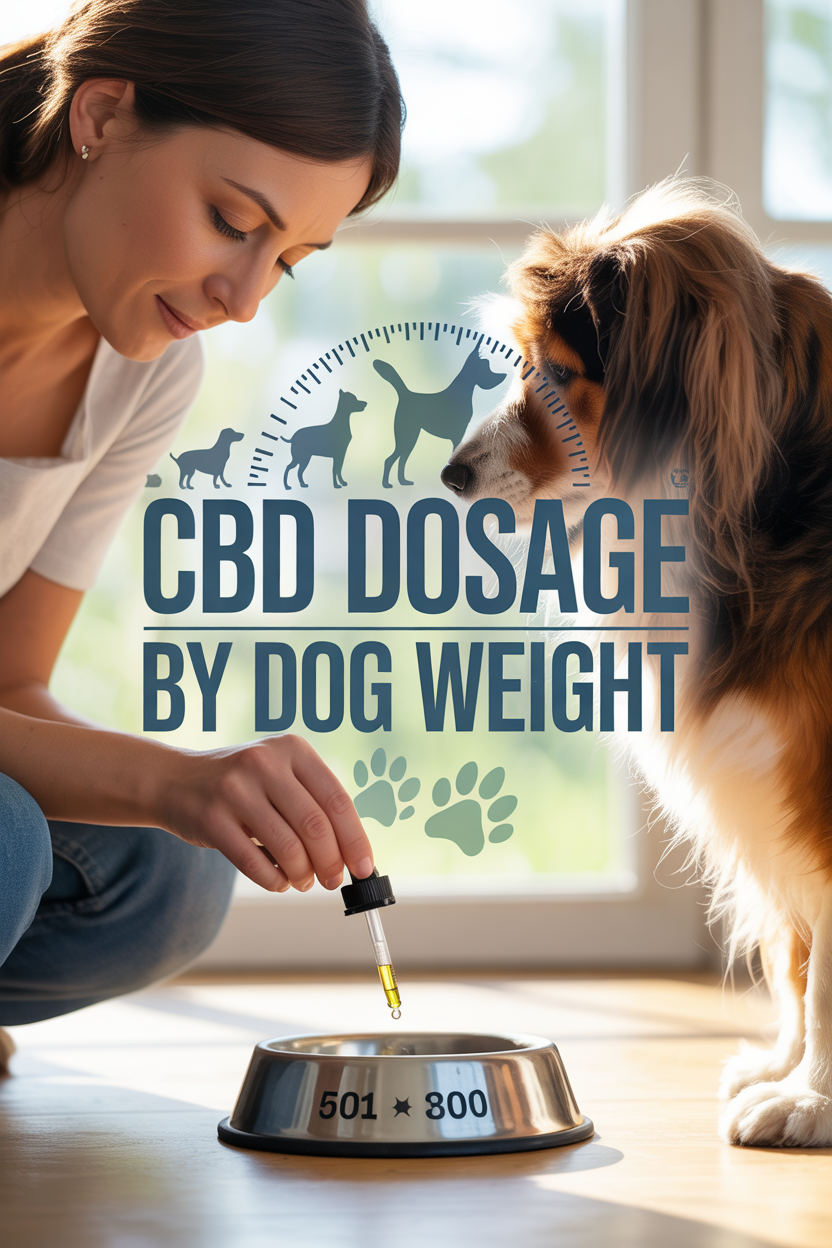
While individual needs vary, here’s a helpful weight-based starting point:
- Small dogs (under 20 lbs): 1-5mg CBD per dose
- Medium dogs (20-60 lbs): 5-10mg CBD per dose
- Large dogs (60+ lbs): 10-20mg CBD per dose
For mild concerns, begin at the lower end of these ranges. For more significant issues, you might eventually work up to the higher end. Finding your dog’s personal “sweet spot” requires observation and patience.
The Gradual Introduction Method
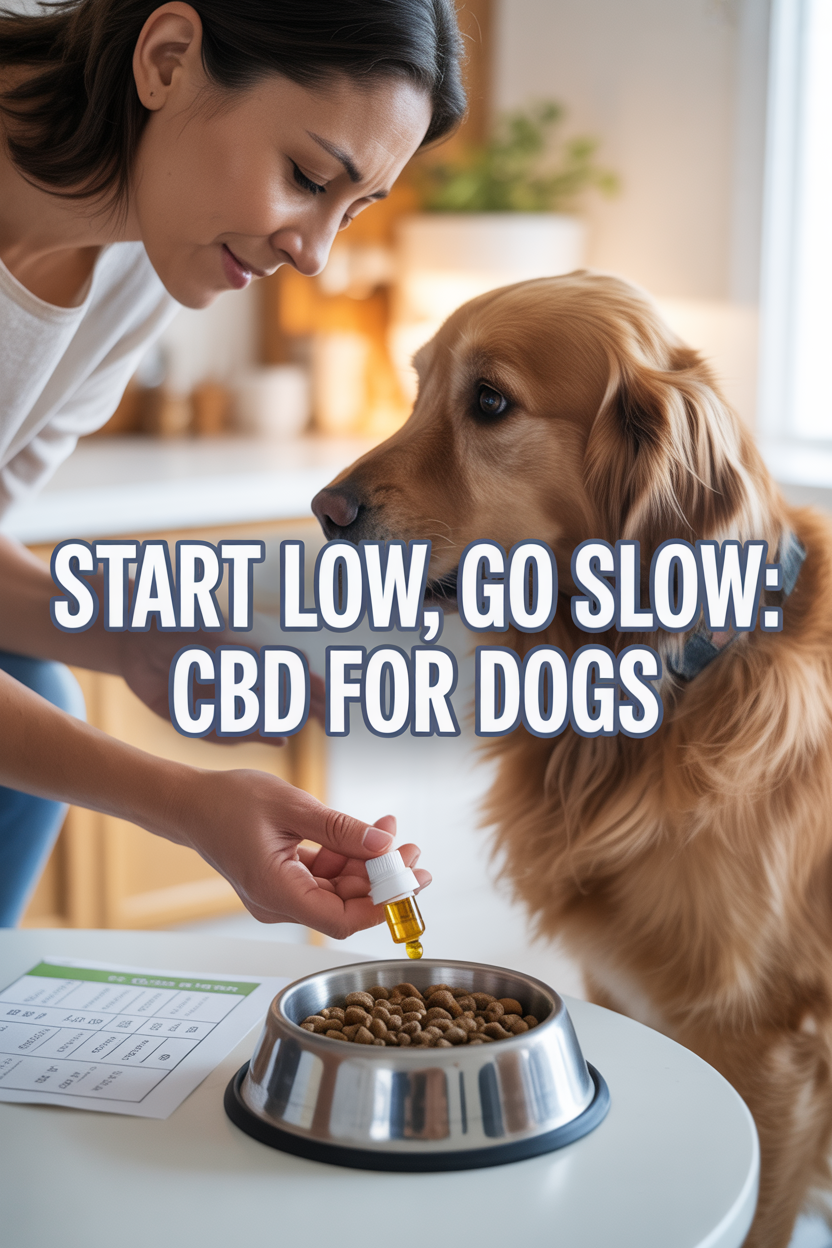
The safest approach to introducing CBD is a gradual one:
- Start with approximately 0.1mg of CBD per pound of body weight, once daily
- Maintain this dose for 3-7 days, carefully monitoring your dog’s response
- If no adverse reactions occur but desired effects aren’t achieved, increase the dose by small increments (about 0.1mg per pound)
- Continue this gradual adjustment every few days until you notice improvement
- Once you find an effective dose, maintain it consistently
This method minimizes the risk of overdosing while helping you identify the minimum effective dose. Some dogs benefit from splitting their daily amount into morning and evening doses for more consistent effects.
Understanding CBD Product Labels
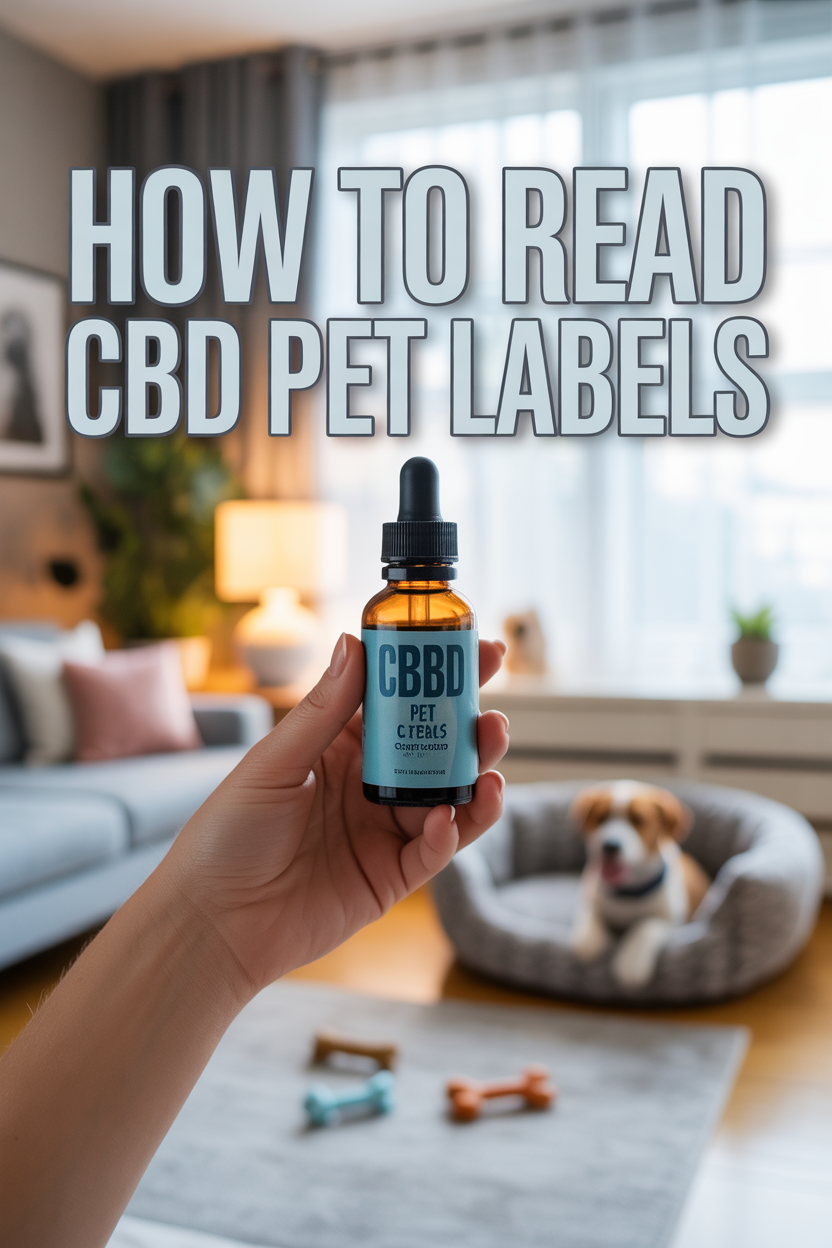
CBD product labels can sometimes be confusing. For oils, the label typically shows the total CBD content in the entire bottle and the bottle size. To determine how much CBD is in each serving:
Total CBD ÷ Bottle volume = CBD per ml
Example: 500mg ÷ 30ml = 16.7mg CBD per ml
Most droppers hold approximately 1ml when fully squeezed, though this can vary between products. For precise dosing, you may need to administer partial droppers.
For treats, the packaging should clearly state how much CBD is in each piece, making dosing more straightforward.
Factors That Influence CBD Effectiveness
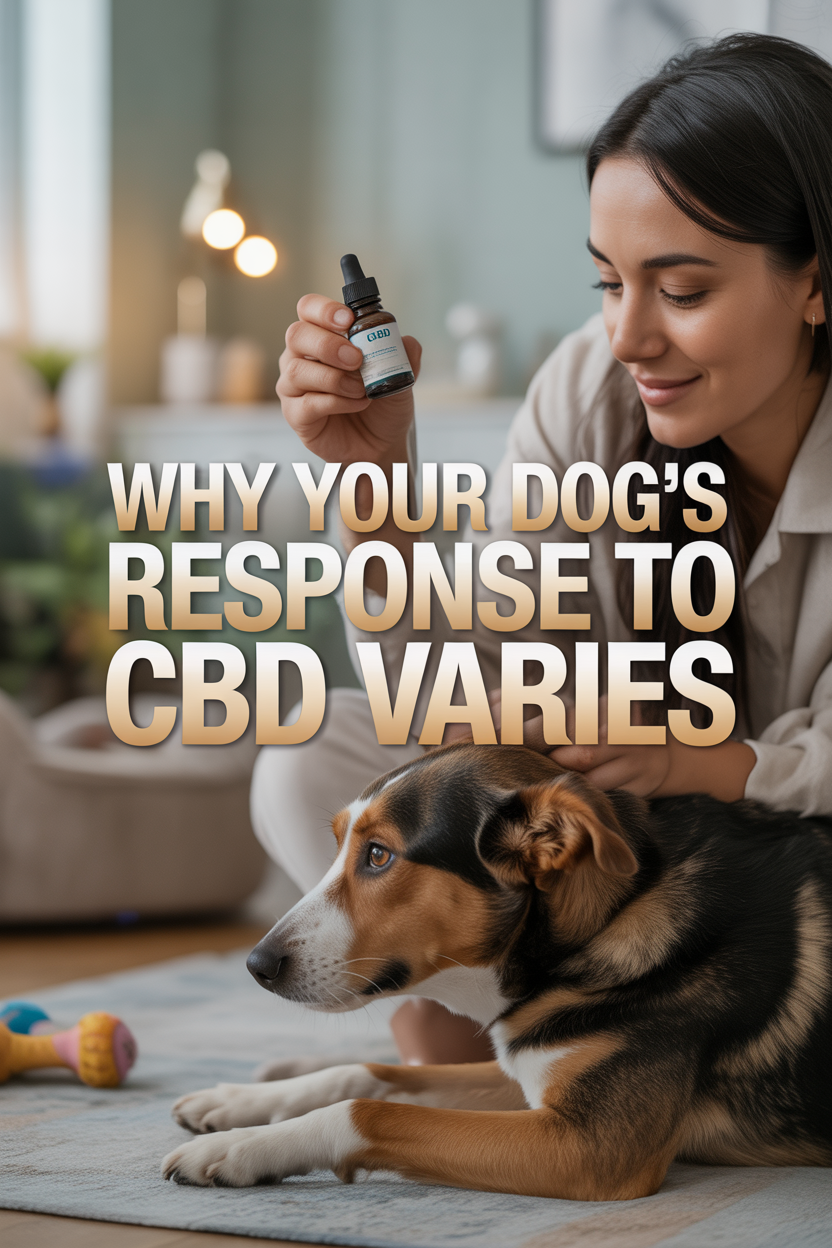
Beyond weight, several factors can affect how your dog responds to CBD:
- Age: Senior dogs may process CBD differently than younger dogs
- Health condition: Different issues may require different approaches
- Activity level: More active dogs might metabolize CBD faster
- Metabolism: Individual metabolic differences affect processing rate
- Diet: CBD is fat-soluble and better absorbed with fatty foods
- Medications: Some medications might interact with CBD
These variables highlight why personalized dosing and careful observation are crucial for optimal results.
Recognizing When to Adjust Your Dog’s CBD Dose

Signs the dose might be too low:
- No noticeable improvement in targeted symptoms
- Benefits wear off quickly
- Symptoms return with the same intensity
Signs the dose might be too high:
- Excessive drowsiness or lethargy
- Dry mouth (indicated by increased water consumption)
- Slight coordination issues
- Digestive disturbances
If you notice concerning symptoms, reduce the dose and consult your veterinarian. The goal is to find a balance that provides benefits without uncomfortable side effects.
Potential Side Effects and Safety Considerations

While CBD is generally well-tolerated by most dogs, possible side effects include:
- Dry mouth (increased thirst)
- Temporary drowsiness, especially when first starting
- Slight drop in blood pressure (might appear as mild dizziness)
- Digestive upset, including diarrhea or changes in appetite
Most side effects are mild and often diminish as your dog adjusts to CBD. Serious adverse reactions are uncommon but possible. If your dog experiences vomiting, excessive sedation, coordination problems, or other concerning symptoms, discontinue CBD use immediately and contact your veterinarian.
CBD and Medication Interactions
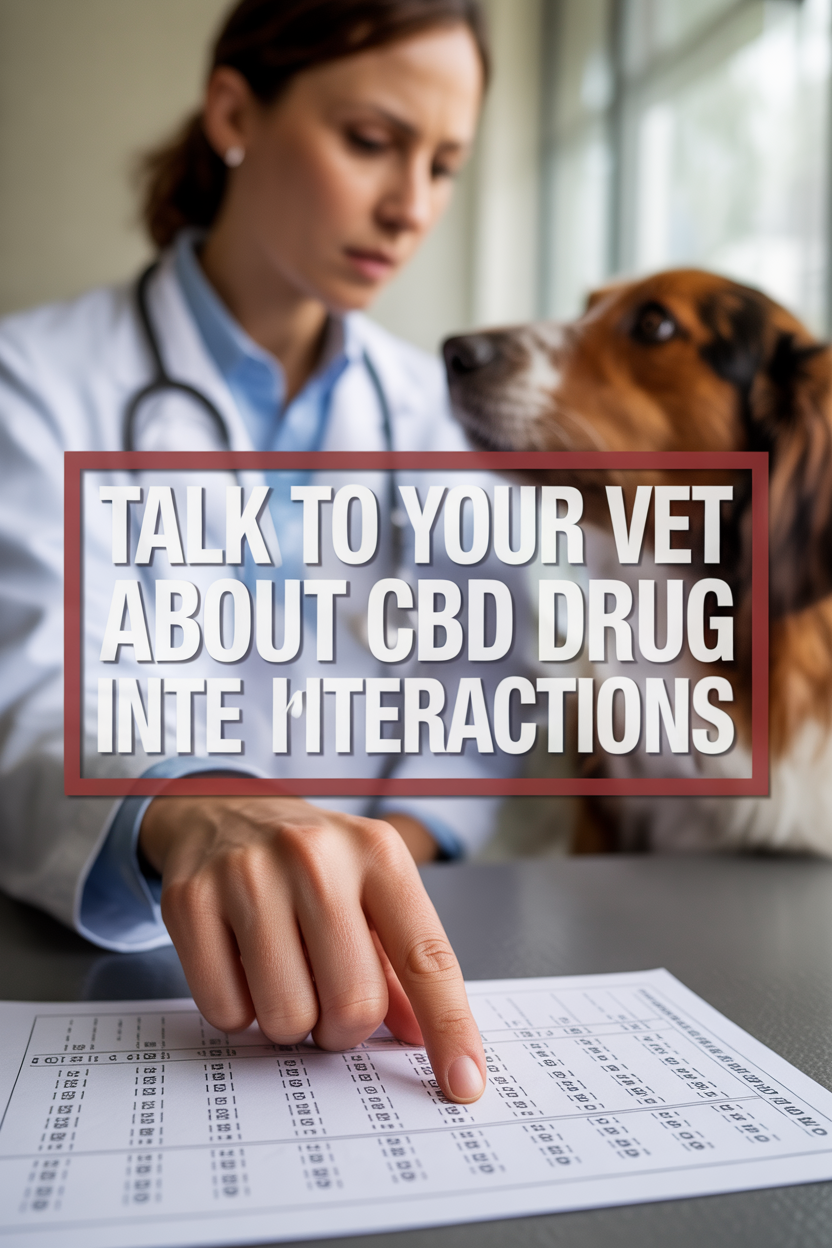
CBD can interact with certain medications by affecting liver enzymes that metabolize many drugs. Be particularly cautious if your dog takes:
- Seizure medications
- Heart medications
- Anti-anxiety medications
- Blood thinners
- NSAIDs and other pain medications
- Certain antibiotics
Always inform your veterinarian about CBD use if your dog is on any medications. They may need to adjust dosages or monitor your dog more closely to prevent adverse interactions.
Consulting Your Veterinarian About CBD

While regulations regarding veterinarians and CBD discussions vary by location, most veterinarians are becoming increasingly knowledgeable about CBD options.
When discussing CBD with your veterinarian:
- Be open about your interest in CBD for your dog
- Bring information about specific products you’re considering
- Ask about potential interactions with your dog’s current medications
- Discuss your dog’s specific health concerns in detail
- Request monitoring recommendations if you decide to try CBD
If your veterinarian seems uncomfortable discussing CBD, consider consulting a holistic or integrative veterinary practitioner who may have more experience with complementary therapies.
Remember that CBD should complement, not replace, proper veterinary care. The most effective approach typically combines traditional veterinary medicine with carefully selected complementary options like CBD.
